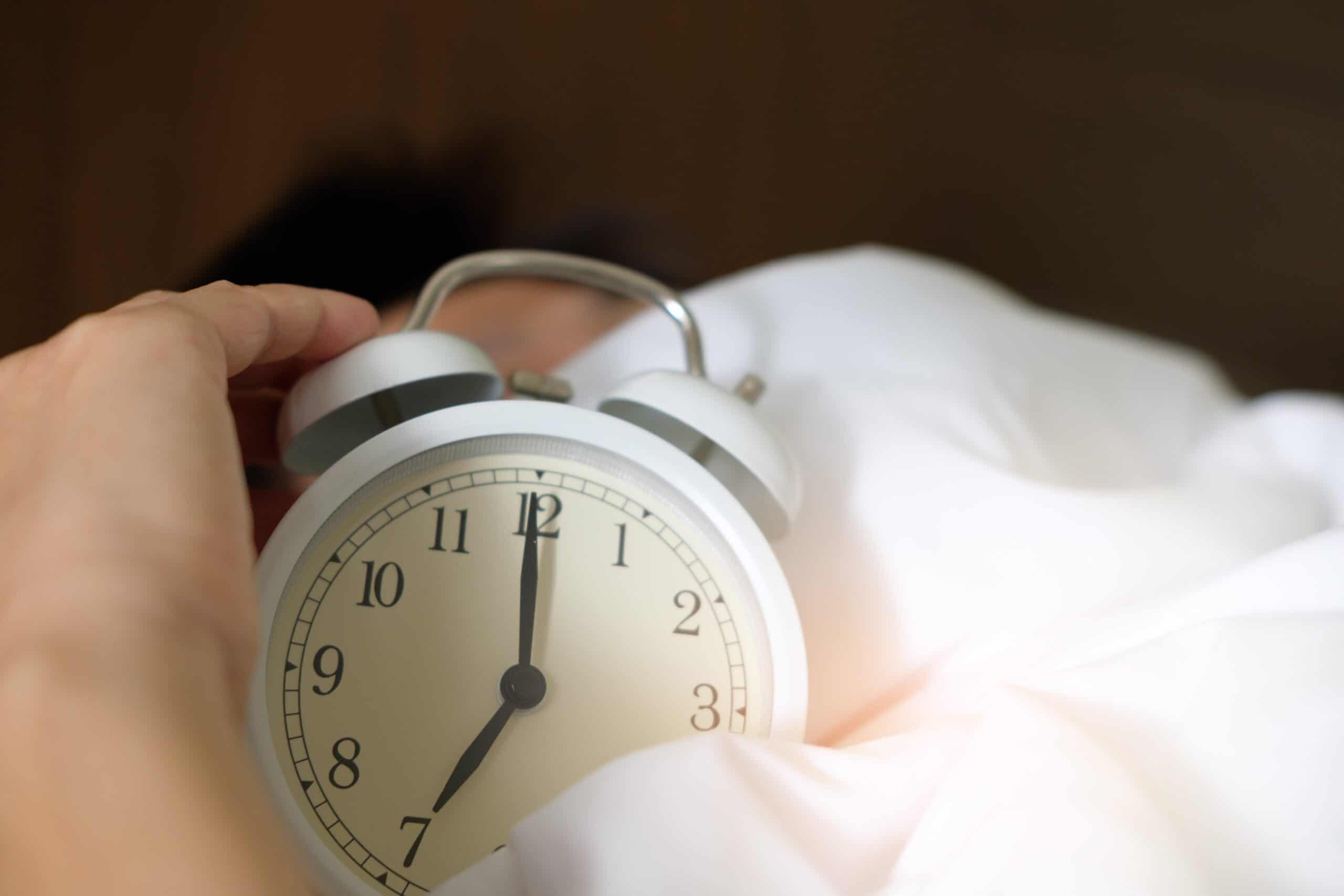Little habits you have, especially before bed, can have a huge impact on the quality of your sleep. If you are someone who struggles falling asleep, staying asleep or just chronically wakes up feeling unrested, this article is for you!
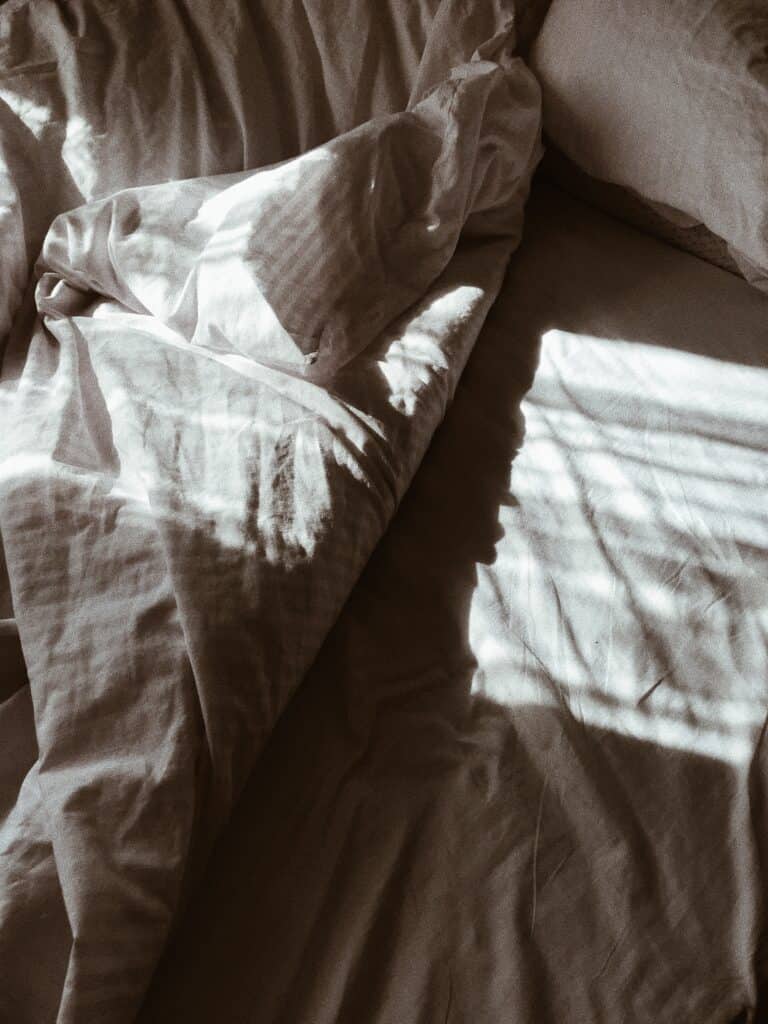
1.First and foremost, your bed is your bed. Your table is for eating, your shower is for bathing and your bed is for sleeping, period. Please do not use it as a place to do work or even bring your laptop/homework there. Our mind needs that separation so it knows, “ah, this is my resting place”.
If you are someone who regularly works in bed, you may be disrupting your sleep schedule more than you realize. Those lines easily blur and now all of a sudden your brain cognitively associates your bed with a place to stay awake and tries to facilitate productivity instead of rest!
2.There is a certain wavelength of light emitted from screens (blue light) and that light interferes with our circadian rhythm a.k.a. our natural internal clock. Basically, our body’s sleep hormone, melatonin, doesn’t release normally when blue light is present. So if the picture to the right is you, just know this habit may be effecting your ability to have restful sleep.
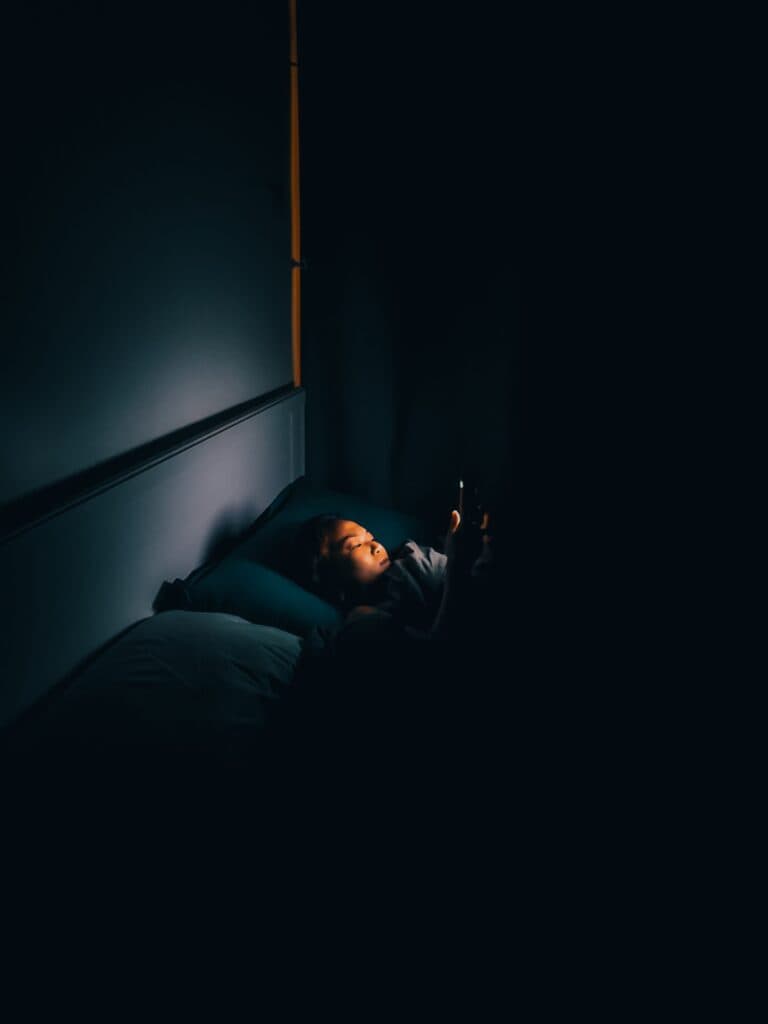
3. Caffeine caffeine caffeine! What time are you drinking your last cup of coffee or tea? Without going into too much detail here, we all drink caffeine to help promote wakefulness. That essential morning cup of coffee can become detrimental to our sleep when we continue consumption later into the day. Caffeine works by blocking our adenosine receptors, another sleep-promoting receptor. Caffeine lasts about 4-6 hours on average but of course, different drinks contain different caffeine amounts. Also, the half life of caffeine can range between 6-10 hours so even if you can fall asleep after an afternoon cup of joe, it still effects your sleep quality/structure. We all know that caffeine tolerances varies significantly between individuals; as a rule of thumb, I recommend all patients avoid drinking caffeine after noon (those in a typical 9-5pm job).
4. No naps during the day! This one is simple and I don’t think requires much explanation. If you have difficulties sleeping and it is not necessary, cut out the day-time napping please, with love <3.

5. These next two tips for sleep hygiene go hand in hand: avoid big meals right before bed and make time to exercise during the day. Consuming a large meal before bed is detrimental not only for sleep, but also can lead to obesity secondary to poor digestion. Additionally, the likelihood of gastric reflux increases when laying down right after consuming a large meal.
The exercise part is essential to perform at least 4 hours before bedtime in most cases. Exercise as we know reduces stress, specifically by lowering our cortisol levels. Exercise also helps regulate our circadian rhythm, the astounding internal clock mentioned earlier.
6. Last but not least, establish a bedtime routine. Whatever that may look like for you personally, try to go to sleep around the same time every night. Save your relaxing activities for right before bed like meditation, gentle stretching, reading, etc.
Okay so now that we’ve gone over basic sleep hygiene, before I leave you to go get a better night’s rest, let’s discuss sleeping supplements. Before you take that Ambien your primary care provider prescribed you for insomnia, read this first. Ambien and other benzodiazepines should be the last thing you reach for as a sleep aid. There are many supplements shown to be just as effective that are better for your health in the long run.
A. Melatonin → a less potent sleep aid but a natural option and definitely a good place to start. This works by augmenting the natural sleep-wake cycle as discussed above. There is recent talk about possible fertility side effects, but all the studies I’ve found showed that melatonin can improve fertility in women and actually increased IVF success rates. Find the article here.
B. Magnesium → a personal favorite of mine to aid in sleep and is effective for many patients. Magnesium works by reducing our stress hormone, cortisol, promoting relaxation, and also increasing melatonin levels. This is a very homeopathic, natural option and researchers hypothesize that magnesium helps lower stress and improve the overall quality of sleep.
C. Tryptophan → this is the last “natural” option that I recommend for patients. There may be a plethora of other herbs, spices, and natural supplements that may work, again make sure to consult with your PCP!
Tryptophan sounds familiar because it’s naturally found in turkey! This is why we feel so sleepy after Thanksgiving meals, primarily due to tryptophan. Tryptophan, taken right before bedtime, can help patients fall asleep without effecting next day “alertness”.
~~~~~~~~~~~ Honorable mention- L-Theanine → I have only recently started learning about/using this supplement, but various new studies and data shows sleeping benefits. L-Theanine is a natural amino acid that effects multiple neurotransmitters to help the brain relax and promotes sleepiness without next-day drowsiness. ~~~~~~~~~~~
D. Unisom/Hydroxyzine/Benadryl → these medications are all antihistamines and are typically for allergies. This entire class of medications is likely to cause next day drowsiness, but effective in sedation and aiding to fall asleep. Again, due to next-day somnolence for many patients this shouldn’t be a first choice, but I do recommend these medications for pain-related sleep or sleep issues when you’re sick.
E. Trazadone → getting into prescription-only medications, trazadone is a great option once the over-the-counters have failed. Trazadone helps regulate serotonin, our “happy hormone”, and at low doses help individuals feel more relaxed, sleepy, and tired when taken before bed. This medication is traditionally an antidepressant and comes with important black box warning so please consult with your primary care provider to see if it’s an appropriate fit for you!
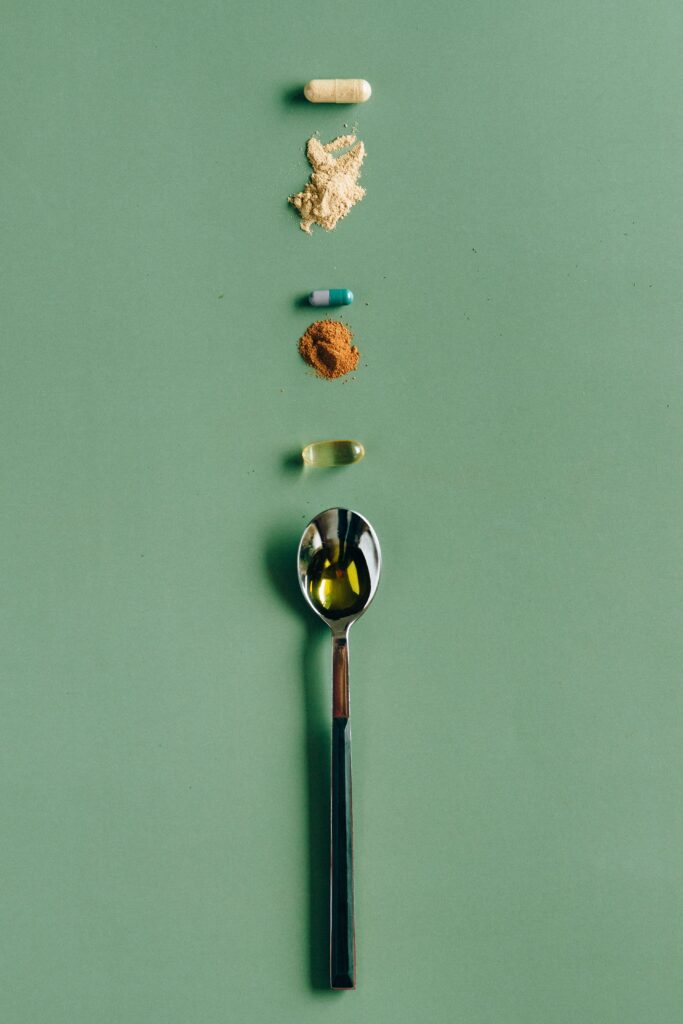
F. Mirtazapine → this medication is more appropriate for insomnia in older patients and also people who are trying to gain weight. Belonging to the class of antidepressants as well, Mirtazapine works as a sedative however, can cause significant next-day drowsiness and increase appetite as a side effect. The drowsiness typically resolves after the first week or two of use however, please consult your primary care provider as this medication is for a very specific patient population.
E. Dayvigo/Belsomra → Also prescription-only medications, Dayvigo and Belsomra work very differently than other sleep aids because they block wakefulness instead of promote sleepiness. They help you fall asleep and stay asleep longer without causing significant drowsiness the next morning. Keep in mind these are newer medications and may be harder to have insurance approval through your primary care.
There are a plethora of other medications, natural supplements and prescriptions strength that I didn’t discuss in this article simply due to length. If you made it this far, thank you for reading! Sleep is a very complicated pathway with so many external and internal factors! I hope this information is helpful to you in some way and helps you get a better night’s sleep. Before starting any supplementation, please discuss with your primary care provider who knows your specific body and can give you the green light!
Never miss a post ~ please subscribe to continue receiving helpful tips from Your Pocket PA 🙂 and check out my last article on carpal tunnel syndrome and Ozempic!
Sincerely,
Foya Tavangary, Your Pocket PA
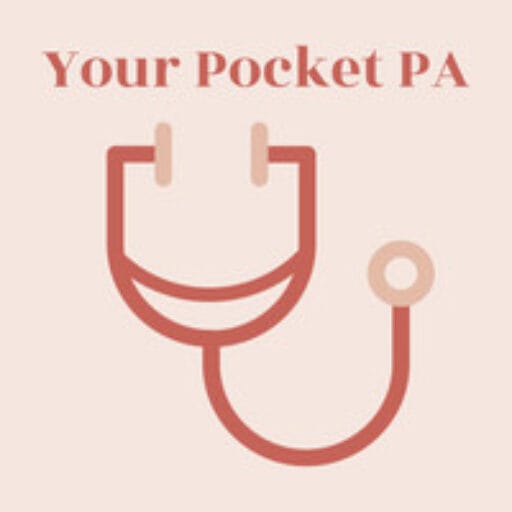
DISCLOSURE: As an Amazon Associate, I earn commissions from qualifying purchases. I have personally tried and recommend the attached links in this article for sleeping supplements.

